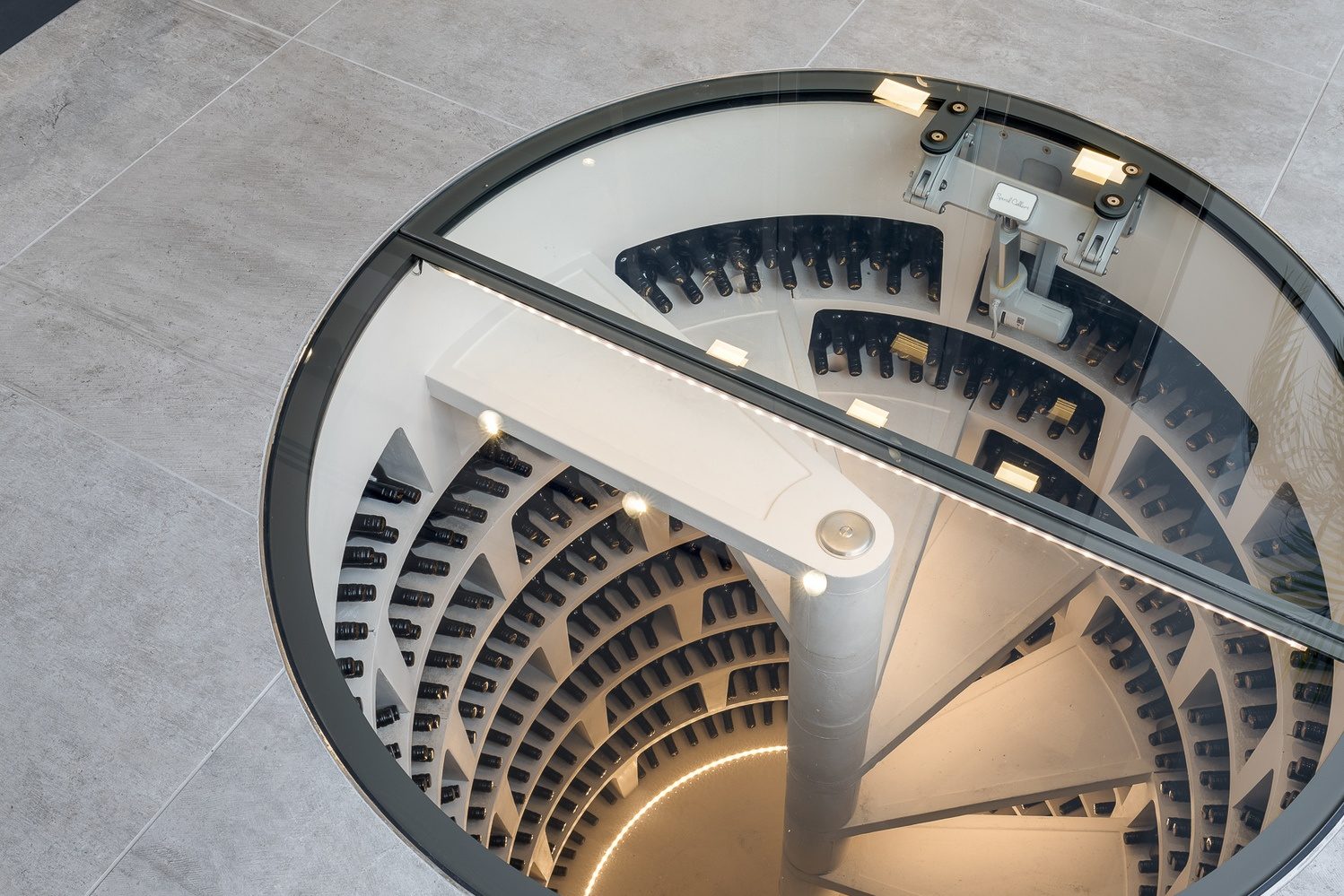
Even the best wines will spoil if badly cellared. Keeping bottles on top of a constantly vibrating fridge or under the stairs where they are at risk as one rummages around trying to access misplaced golf clubs, is not a good idea. It’s estimated that failure to cellar wine in decent conditions results in 30-40% of ‘cellared’ wine spoiling.
A well planned wine cellar ensures access to a steady stream of fully developed wine, by providing not just the space in which to keep large quantities of wine, but crucially, the perfect climatic conditions to aid maturation.
An additional advantage of having a wine cellar is that it offers the storage to enable wines to be bought on first release (en primeur). Purchasing wine before it’s reached its full potential is the smart way to buy wine, as prices inflate significantly the closer the wine gets to its drinking window. For example, a simple Barolo bought for £10 en primeur could cost several times that amount 10 years later. The smart move is to buy young in order to enjoy later.
So what cellaring principles need to be followed in order to create the perfect wine space?
Temperature
Wine should be kept at a stable temperature of between 12-17’C although slight variations of temperature within this window is absolutely fine. If wine is kept at higher temperatures, it will mature too quickly. If kept at a cooler temperature it will mature too slowly.
Vibration free
Wine likes to be left alone as vibrations, no matter how slight, can mix the sediment into the wine increasing the likelihood of a chemical reaction occurring.
Humidity
Fluctuations in humidity can dry the cork out which results in air seeping into the bottle, thus spoiling the wine. To prevent this, wine should be kept at a good humidity approx. 70% to prevent the cork from drying out and the wine from oxidising.
Clean
Given corks are semi-porous, it stands to reason that bad odours can penetrate a cork and negatively impact the wine. Hence, wine should be cellared in a clean, odourless environment. Of course, bottles with screw-tops avoid this issue entirely.
Dark
Ultra-violet light can cause unwanted chemical changes in the wine, causing it to taint. Whilst wine doesn’t have to be kept in total darkness, lighting should be kept at a low level.
Spiral Cellar provides ideal cellaring conditions
A Spiral Cellar provides the perfect conditions in which to cellar wine. It’s unique passive ventilation system provides an optimum temperature and humidity environment without the need for an expensive climate control system. The thermal properties of the concrete cellar also contribute to keeping wine cool, as does the positioning of the cellar within the home. Not only that, but the sturdy concrete structure of the cellar keeps wine vibration free. And with a choice of statement doors to choose from, it will also add an impressive ‘wow factor’ in any room, To experience a Spiral Cellar for yourself, why not visit the Nicholas Anthony showroom in Cambridge which boosts a White Spiral Cellar with a hinged round glass door.





